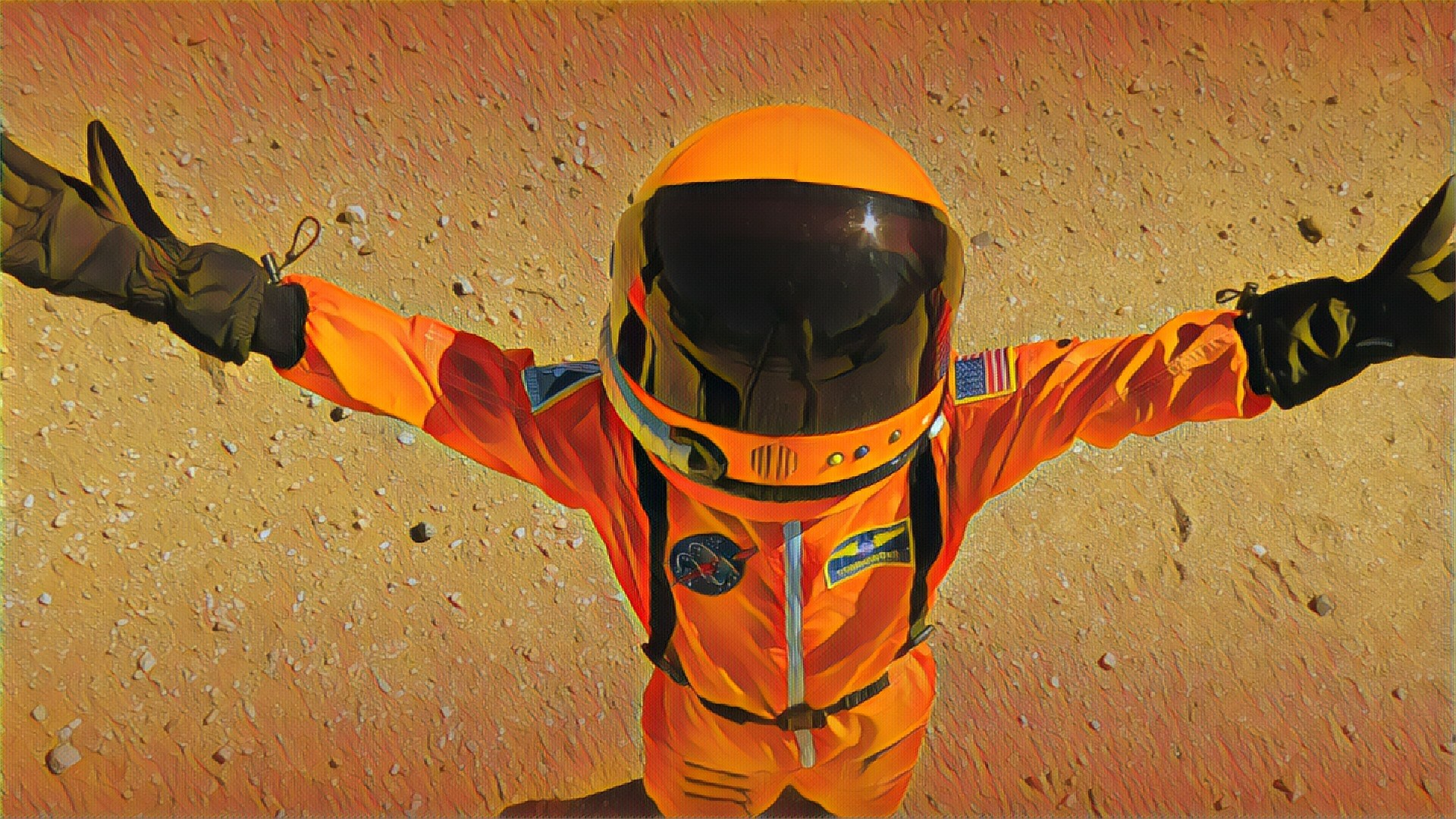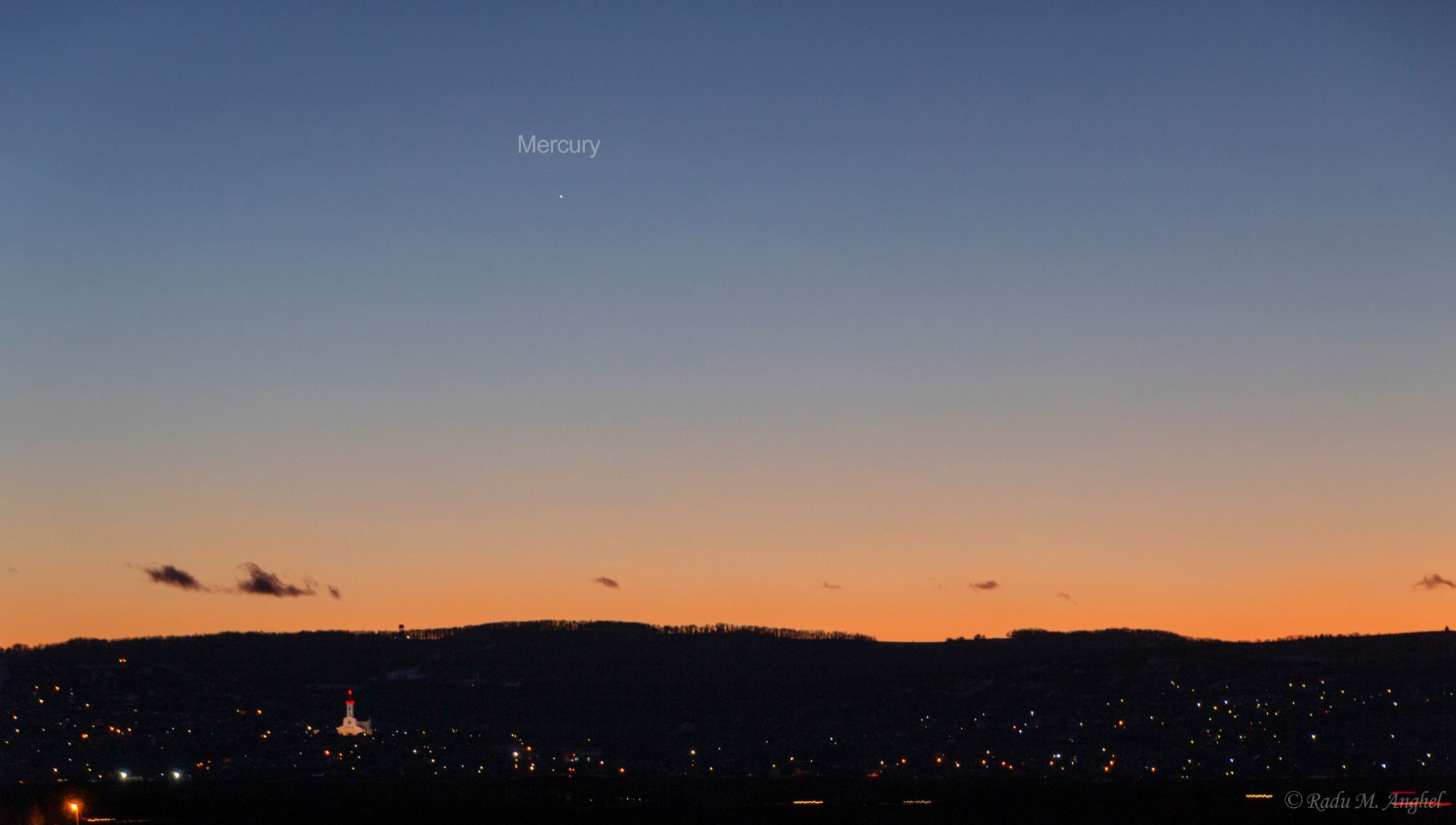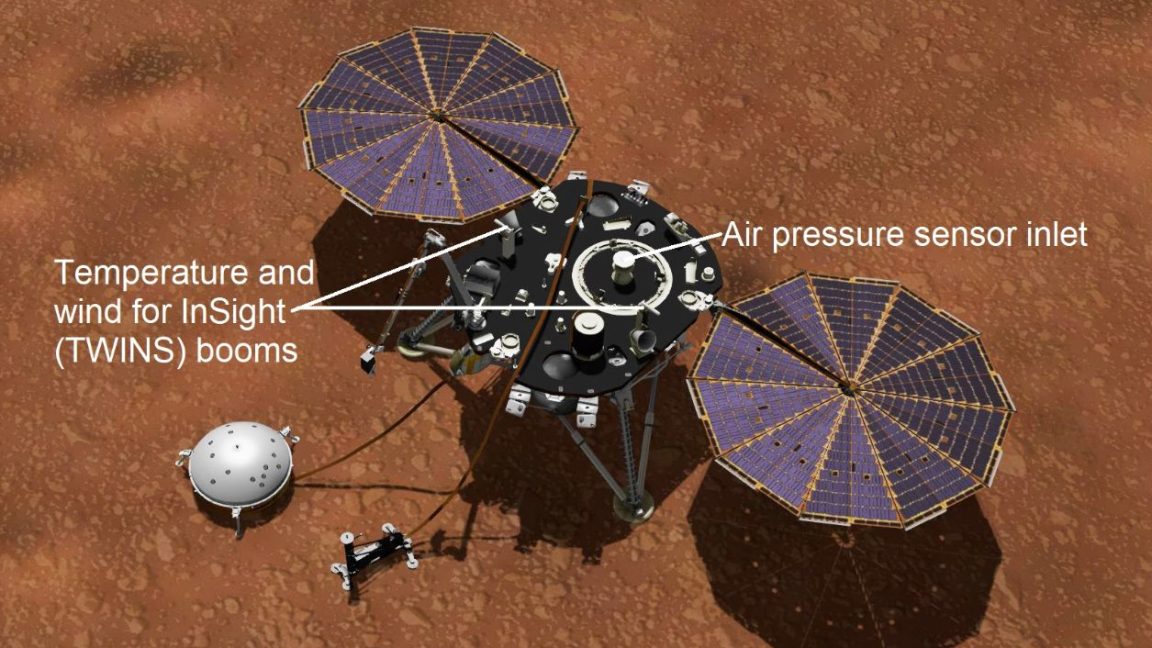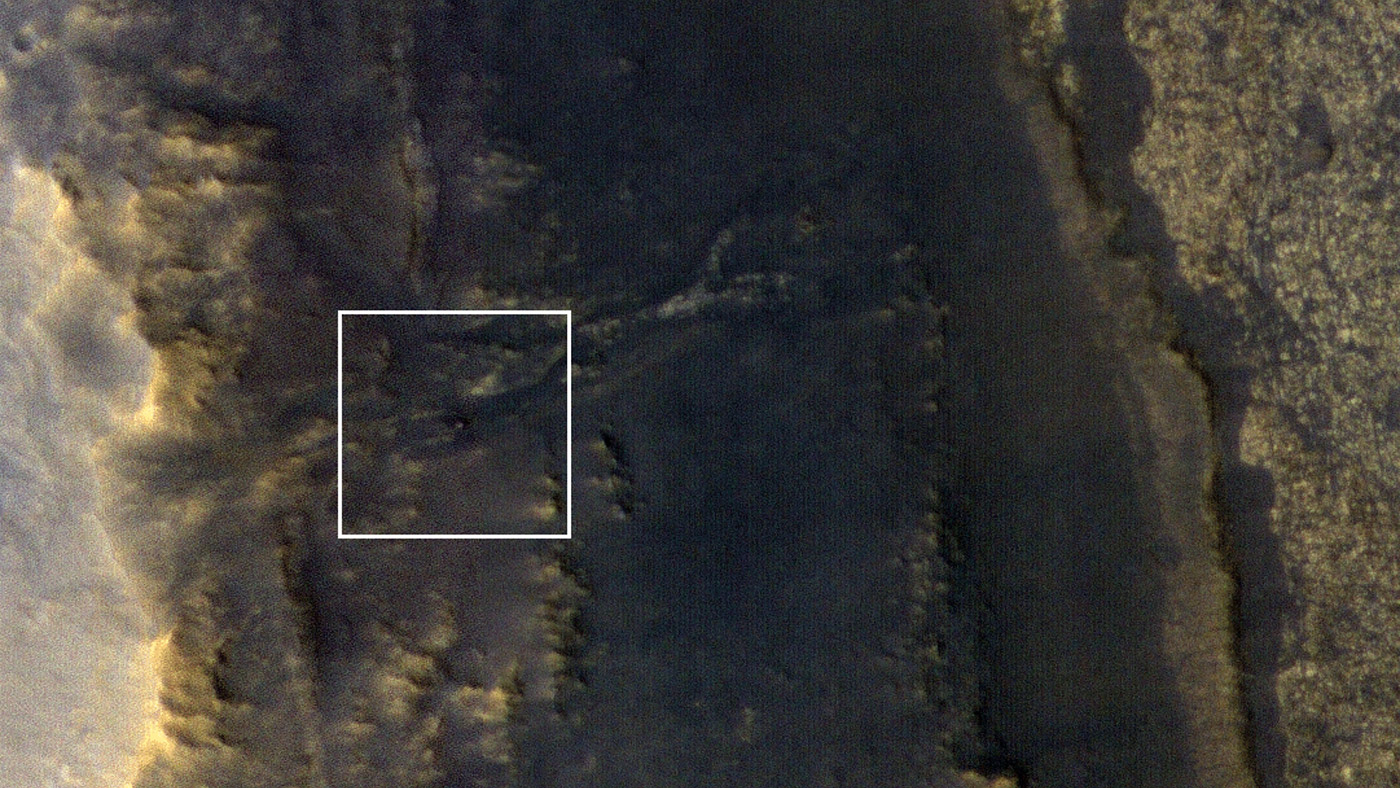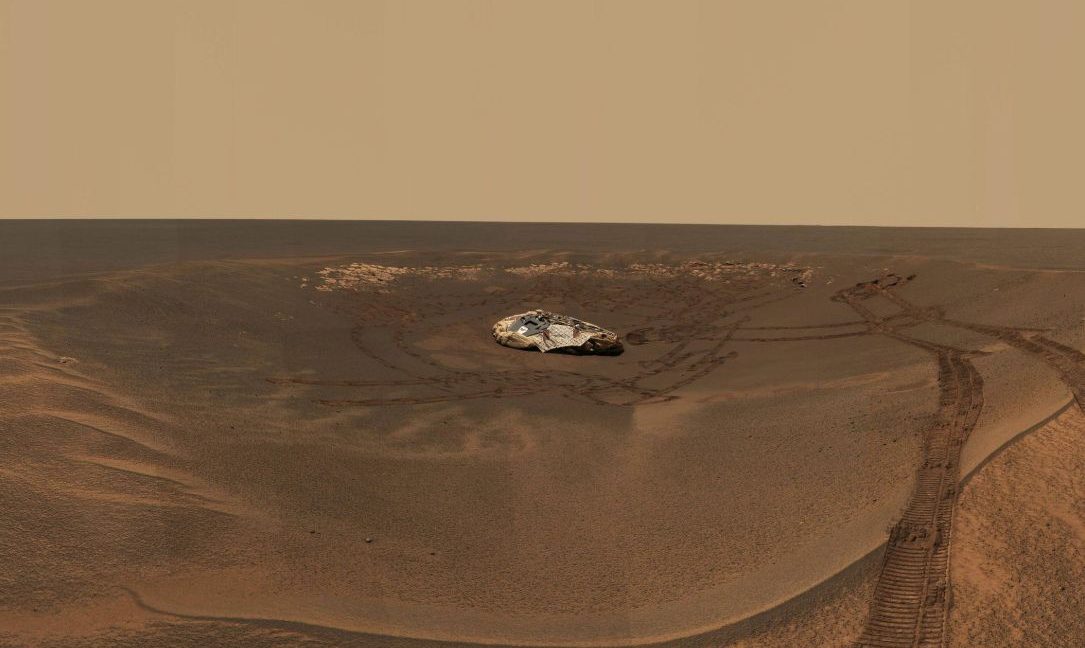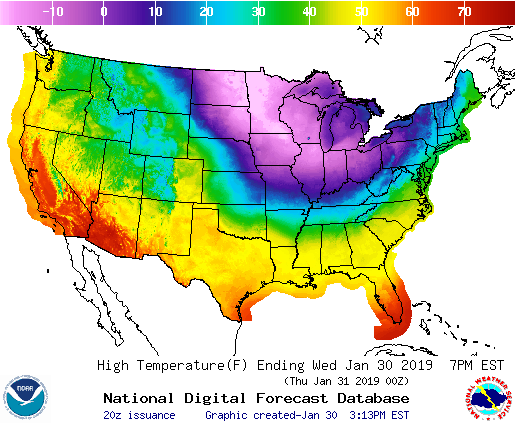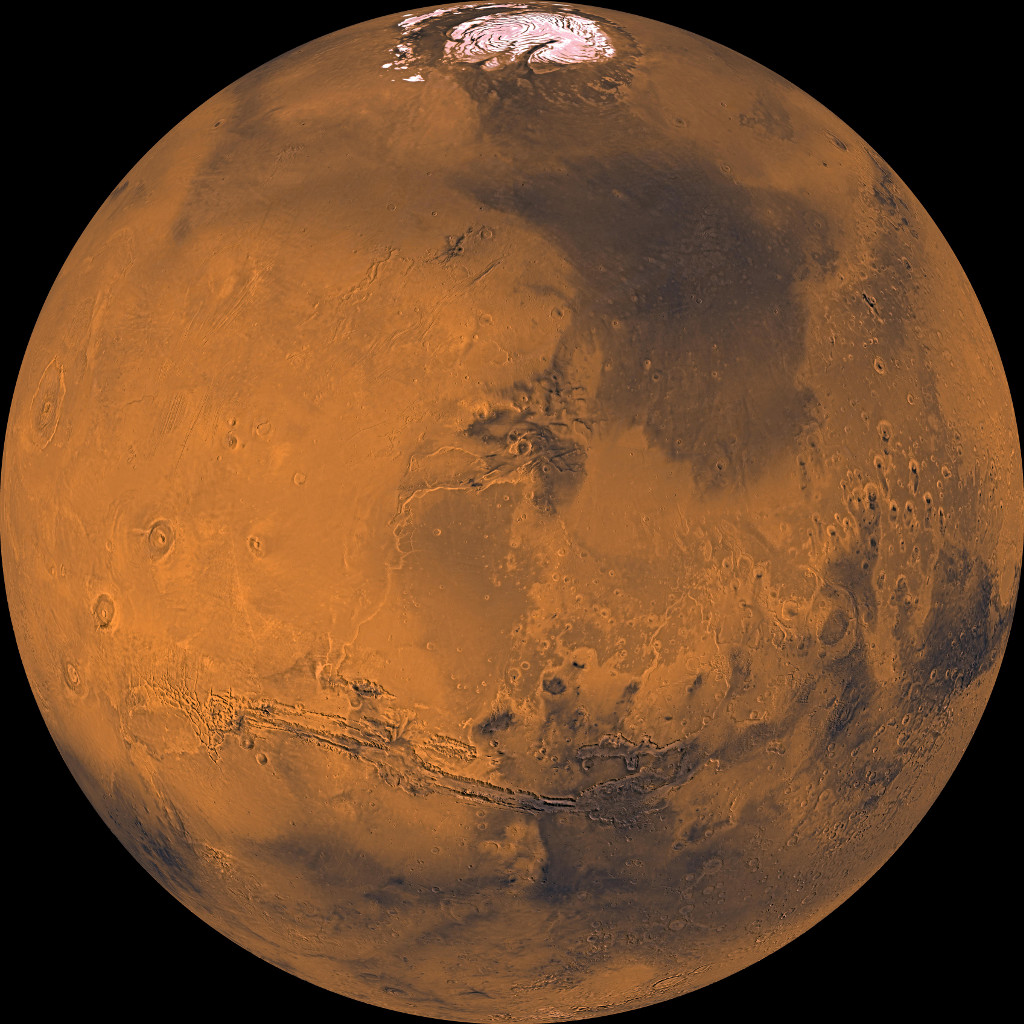“… there are no major technological barriers keeping us from harvesting the resources of the Moon and asteroids. All the barriers are financial.”
Mercury viewing
Opportunities to see Mercury are rare. Right now, it is reaching its greatest elongation and is in an optimal position for viewing shortly after sunset.
Insight finds a mystery
Twice each day, something strange happens to the atmospheric pressure on Mars.
Opportunity rests
So many odes to Oppy are popping up today. It’s heartening to see the influence this tough little robot had on so many.
 Ars Technica
Ars Technica Image: Opportunity at its final resting place in Perseverance Valley, courtesy of NASA
The challenge of writing science fiction
“Writing science fiction is a race between the author’s imagination and the progress of science and history.”
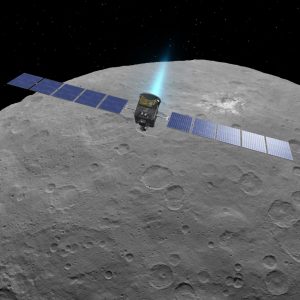
Video clip 16: Step outside
The kids take their first steps on the Martian surface.
background: illustration by Luis Peres for Scratching the Surface
Colder than Mars
Is it really colder in parts of the US right now than it is on Mars? Let’s take a closer look. Continue reading “Colder than Mars”
Utopia is a journey
“This perfect society we’re striving towards should always be a spot on the horizon, something we’re still moving towards even if it seems like we’ve fixed everything. Utopia is a journey: not the happy ending, but the continued improvement of ourselves.”
This is a near perfect summation of my thoughts regarding Dawn Colony in Generation Mars.
Ut melius faciat! (To do better)
Video clip 15: They know about Earth
What would it be like to have only experienced another planet, yet know about Earth?
background: illustration by Luis Peres for Scratching the Surface
Starship test hopper
What we know so far about Starship and its prototype taking shape in Texas.
